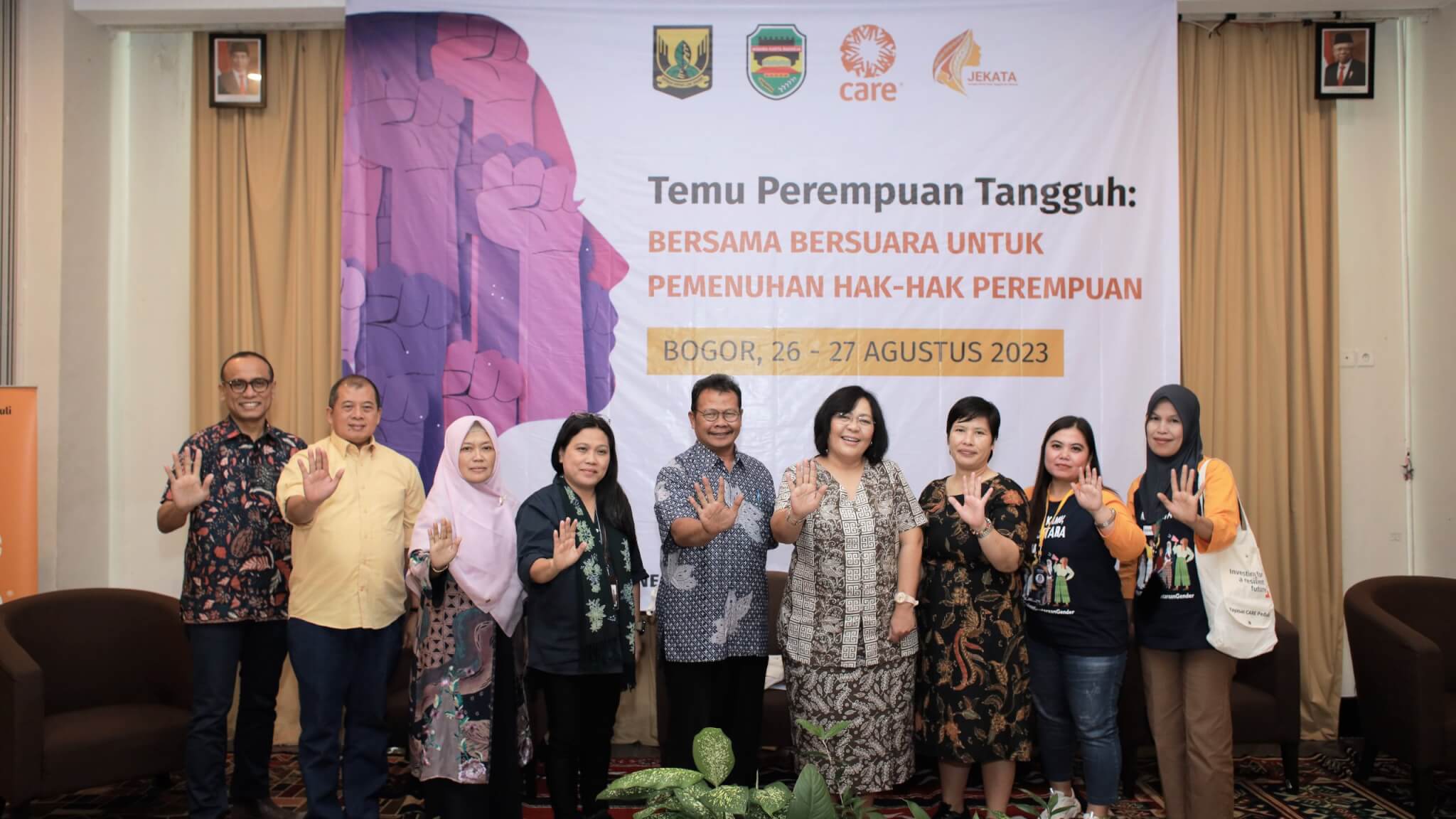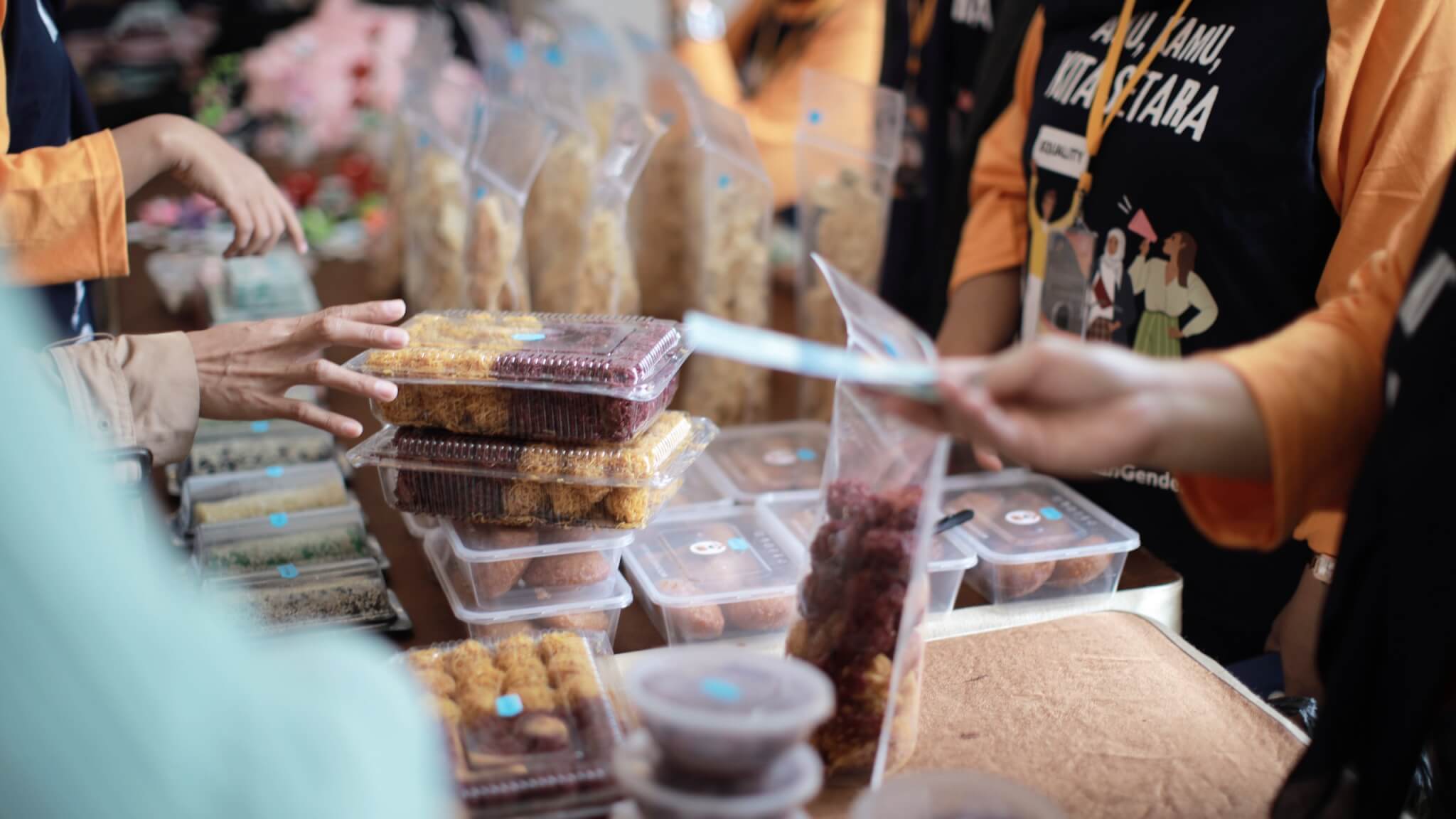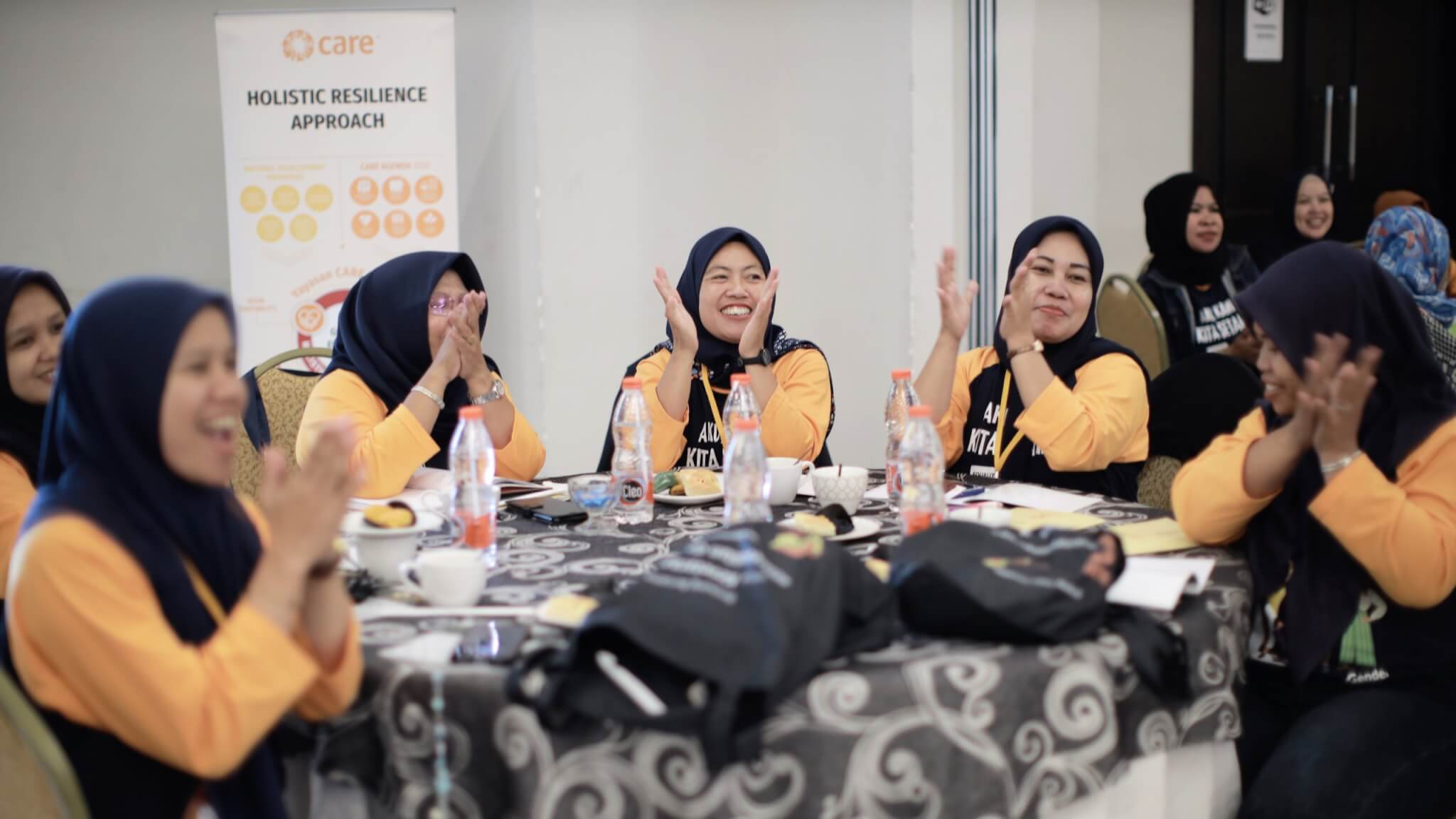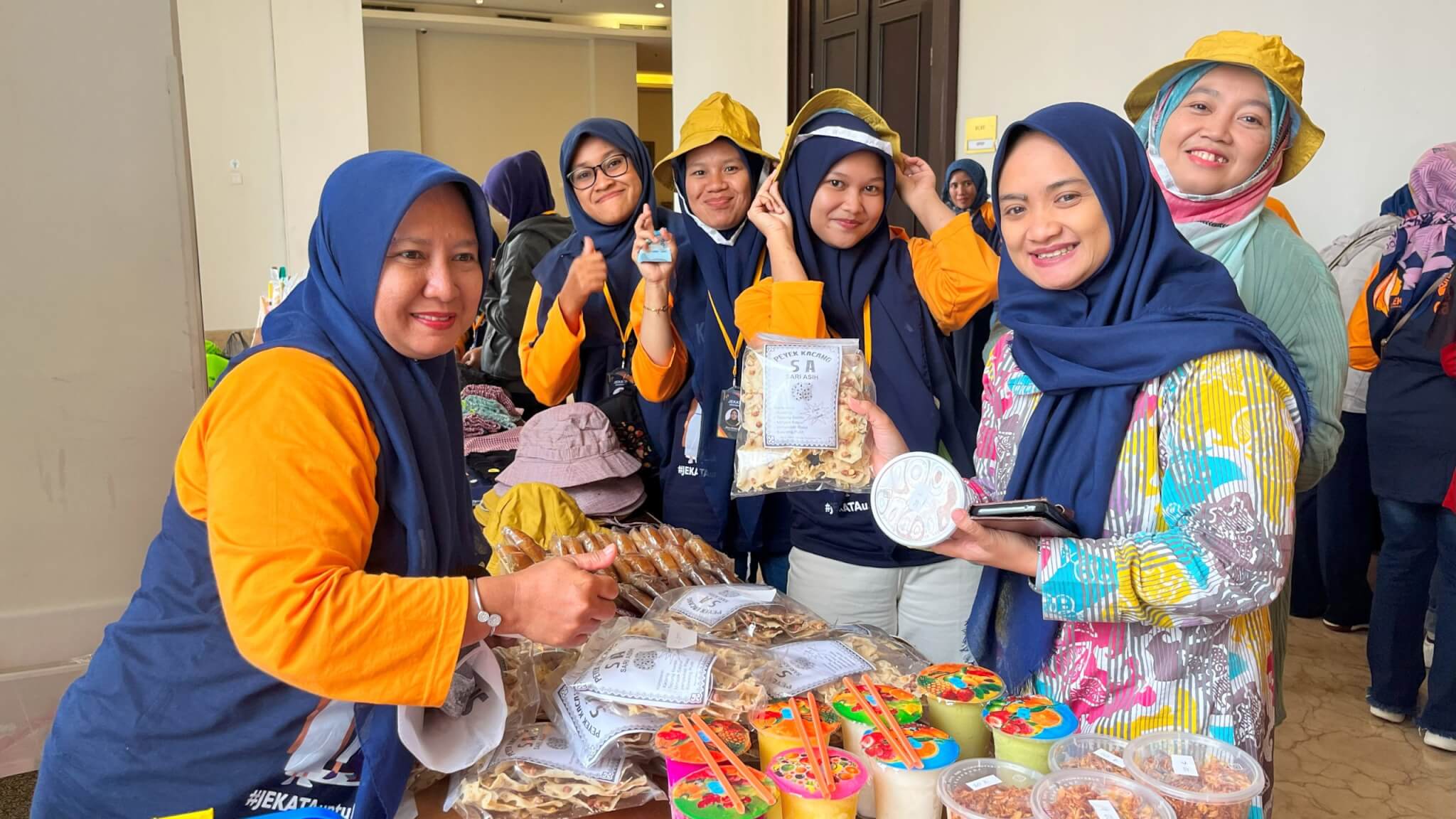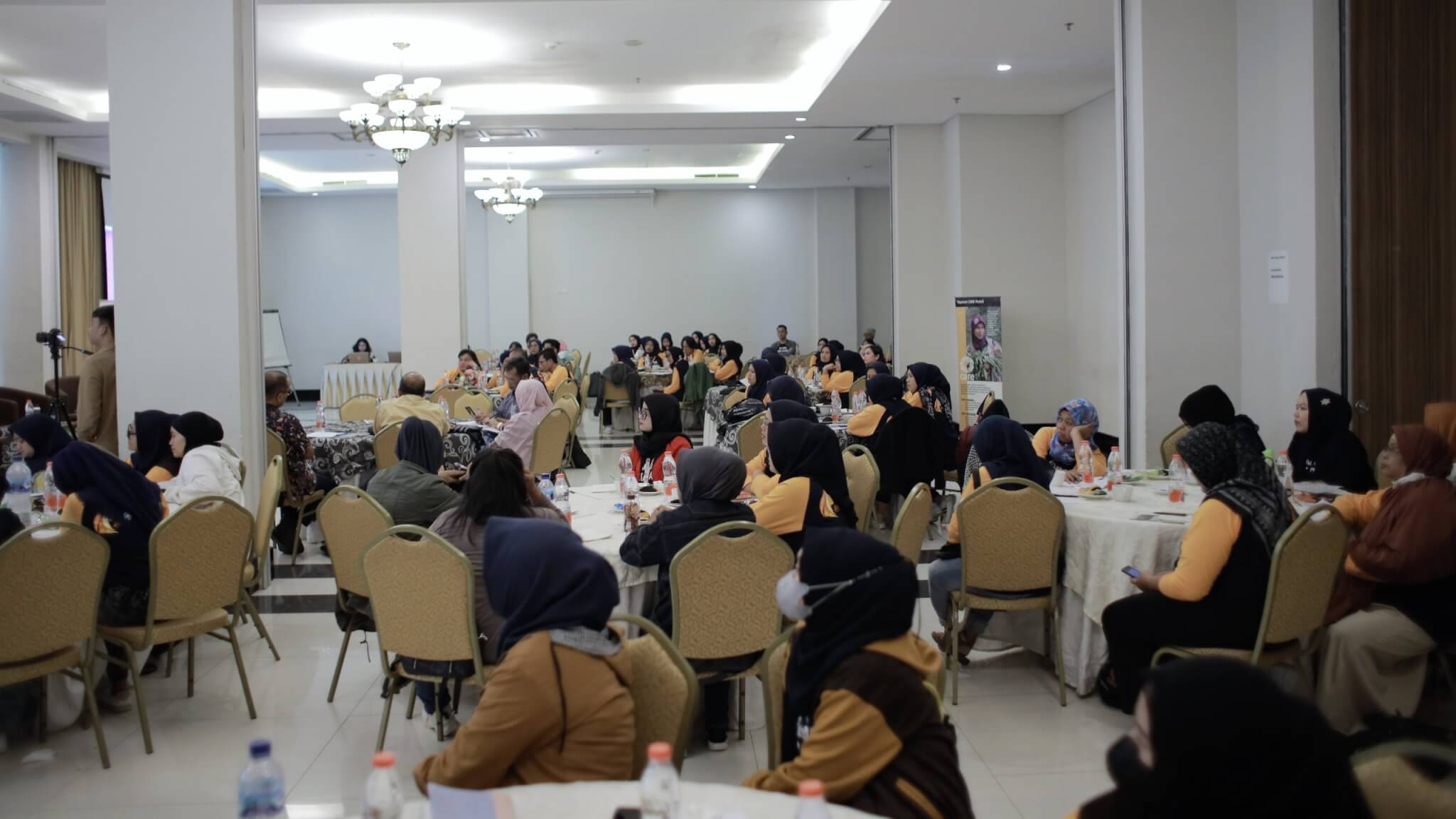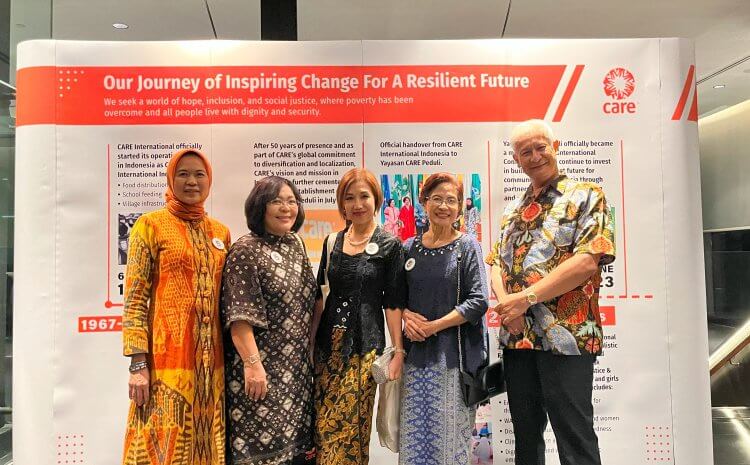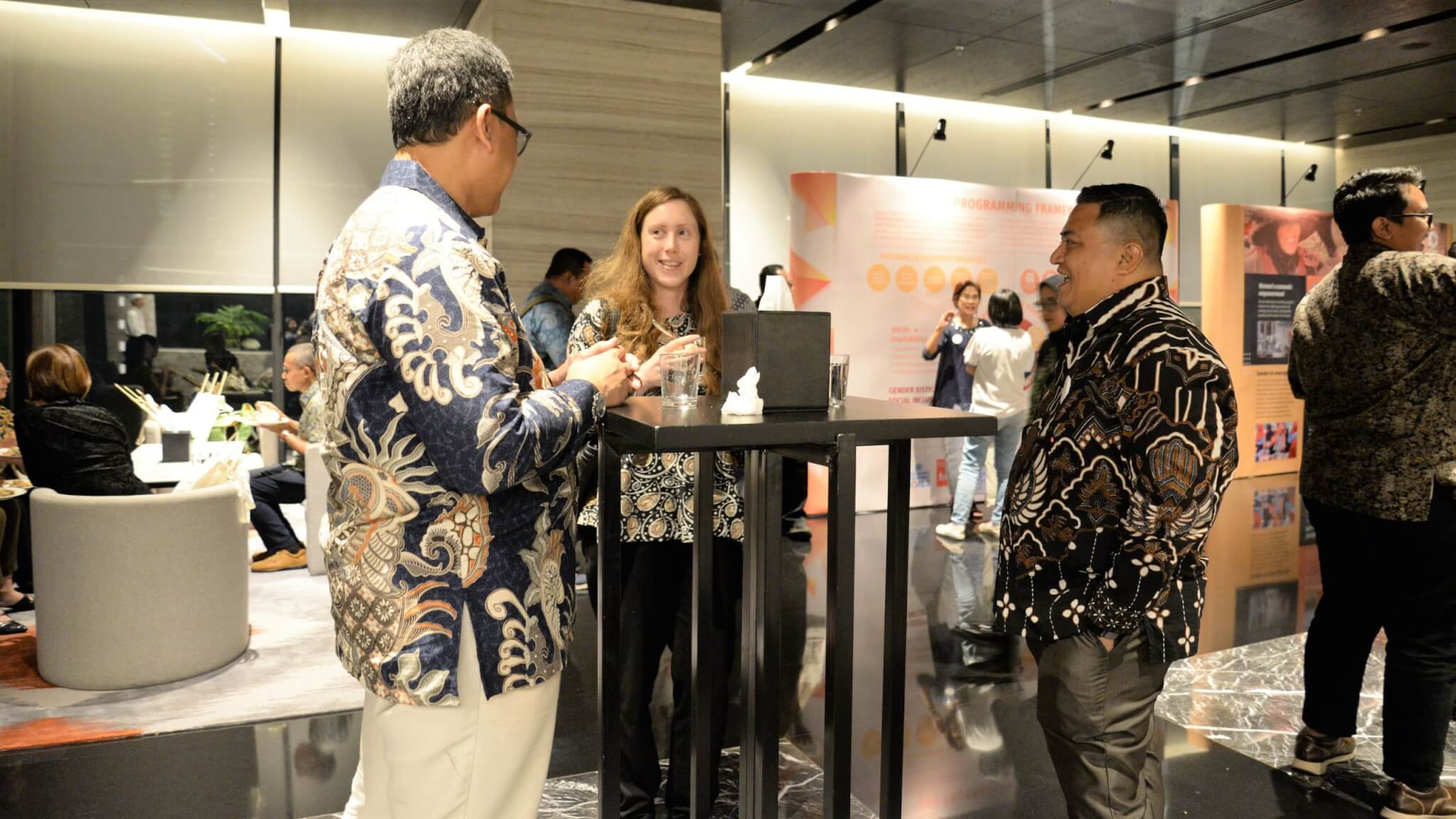Empowering Women Artisans with Oil Palm Fronds Woven Crafts
Having cultural diversity, Indonesia is known for its crafts, one of the branches of visual arts that produces handicrafts with cultural artistic value. The Ministry of Tourism and Creative Economy Republic of Indonesia states that crafts have 5 types based on how they are made, namely carving crafts, batik crafts, weaving crafts, embroidery crafts, and woven crafts. Throughout 2022, the Ministry of Industry recorded a 3.6% increase in the export value of national craft products.
Indonesia has various types of woven crafts, such as weaving from rattan, pandan, purun, and also from oil palm fronds. With a vast oil palm plantation area of 14.9 million hectares recorded by the Central Statistics Agency (BPS) in 2021, Indonesia possesses abundant raw materials in the form of oil palm fronds. Craftsmen, especially women artisans from Musi Banyuasin Regency, South Sumatra, take advantage of this opportunity to develop their businesses by creating woven products.
“In our region, where the majority is comprised of palm oil plantations, there is an abundant supply of oil palm fronds as raw materials. Previously discarded, these palm fronds can now be repurposed by us to craft items with economic value,” said Minarti, a member of the Independent Women’s Economic Business Group (Kelompok Usaha Ekonomi Perempuan – KUEP) from the Village of Karya Maju, Musi Banyuasin Regency, South Sumatra.
Minarti participated in a training on weaving oil palm fronds organized by CARE (Yayasan CARE Peduli – YCP) alongside three other KUEP members from the villages of Bumi Kencana, Tegal Mulyo, and Sri Mulyo. “I was so excited to learn to make woven oil palm frond plates because it is indeed quite intricate and requires patience,” she explained.
In addition to the weaving training, YCP provides training to women members of KUEP through the Women’s Empowerment Program in Oil Palm Communities in Musi Banyuasin. This training includes literacy and financial management, product legality, as well as packaging and product marketing. Furthermore, YCP also employs a cooperative savings and loan approach to enhance women’s economic empowerment, serving as an alternative source of income during the palm oil plantation replanting process.
After a month of training with YCP, Minarti and her groupmate, Sudarweni, gained confidence in promoting their woven oil palm products at the sub-district and district levels. In addition to palm frond plates, Minarti, along with other KUEP members, showcased creativity and innovation in expanding their woven craft product line. They started producing various woven items such as bowl weavings, fruit baskets, pencil holders, wall decorations, and tissue boxes.
Sudarweni shared, “Previously, as a housewife I only stay at home, but now there are many activities, so I’m busy attending trainings and making lots of friends”. Minarti and Sudarweni, have become craftswomen after participating in the training organized by YCP. They have started a business selling woven products made from oil palm fronds to supplement their family income. From July to December 2023, KUEP Mandiri Peduli has produced 525 pieces of woven palm craft, generating a total income of more than 5.5 million Rupiah. “Now I can help my husband supplement our income through the sale of crafts. I have a business at home while taking care of the children without having to neglect my duties,” said Minarti.
In addition to the economic aspect, Minarti also experienced changes in her role within the household. Initially, Sutrisno, Minarti’s husband, did not give any respond towards Minarti’s weaving activities. After participating in male engagement training conducted by YCP, Sutrisno became more supportive of his wife’s woven oil palm craft business. “After the gender training, my husband gained a better understanding of roles within the household. So, a woman doesn’t have to stay at home only. Women are also entitled to have opinions, and husbands should listen to and respect them,” she explained.
Minarti shared that Sutrisno supported the venture by personally assembling a frond-shredding machine and allowing their home to be used as the basecamp or production centre and store for the woven oil palm craft products of KUEP Mandiri Peduli.
The dedication of Minarti and Sudarweni yielded results with numerous craft orders. The products of KUEP Mandiri Peduli were invited to be displayed at a booth at the MUBA Expo 2023 and achieved third place in the District-level Innovative Product Competition. Moreover, KUEP Mandiri Peduli was invited as speaker at events focused on Human Resource Development and Business Incubation in Musi Banyuasin Regency. Sudarweni explained, “Through these events, we started to gain recognition from many people. Woven palm frond crafts became viral in our area.”
Despite facing challenges in running the woven oil palm craft business, according to Minarti, the support from her family and the local community serves as motivation for her continued growth. “This change leads us to better things, and we are ready to face challenges in the future. All of this is possible thanks to the CARE Peduli Foundation,” Minarti expressed. To date, KUEP Mandiri Peduli has received orders from various sources, including local restaurants, cafes, and government institutions. Minarti hopes that in the future, woven palm frond crafts can expand to the provincial and national levels, and their success can inspire other women to be independent and confident in their entrepreneurial pursuits.
***

Writer: Nurainy Darono, Editor: Swiny Adestika


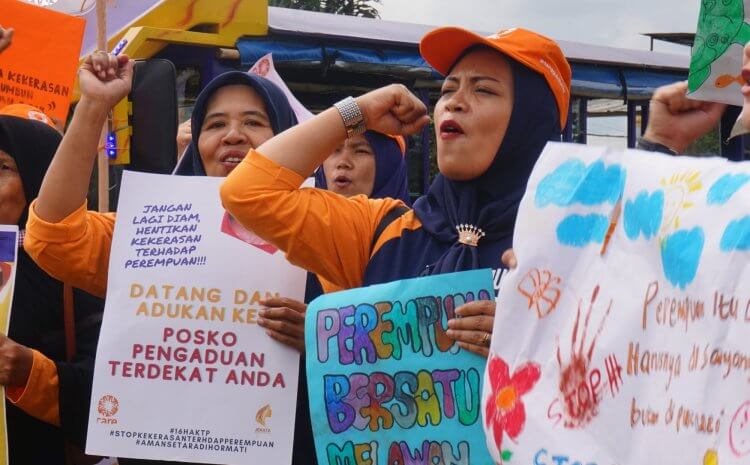


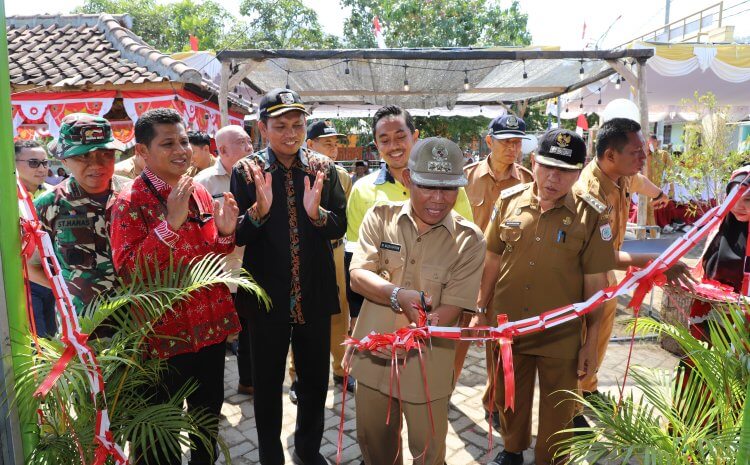






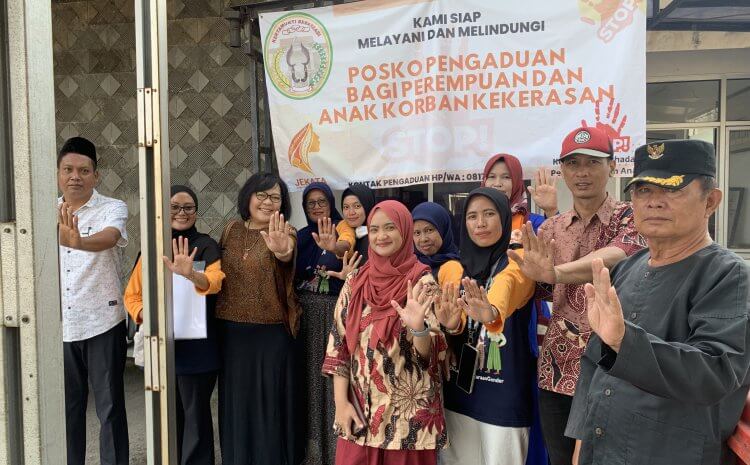








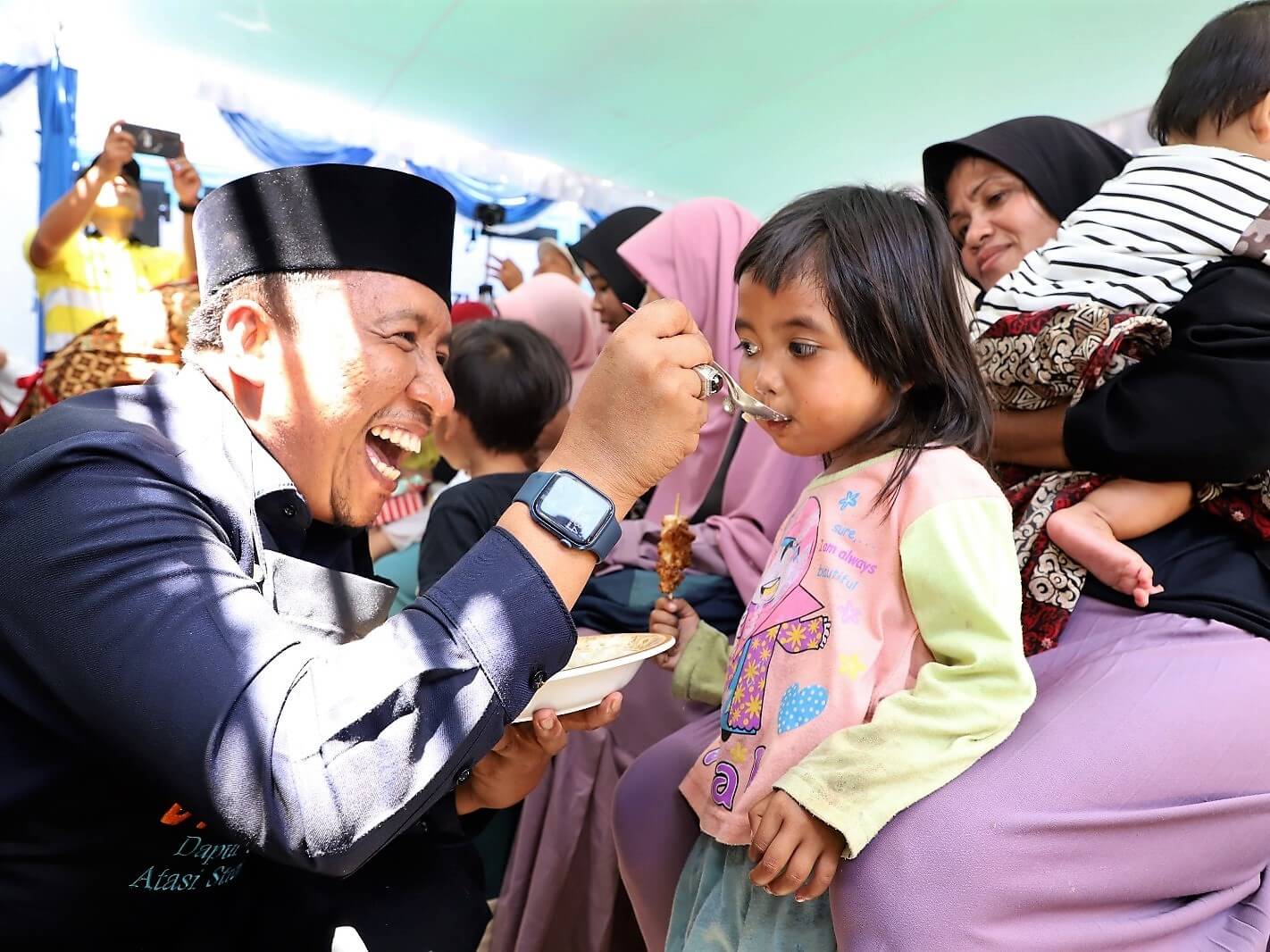
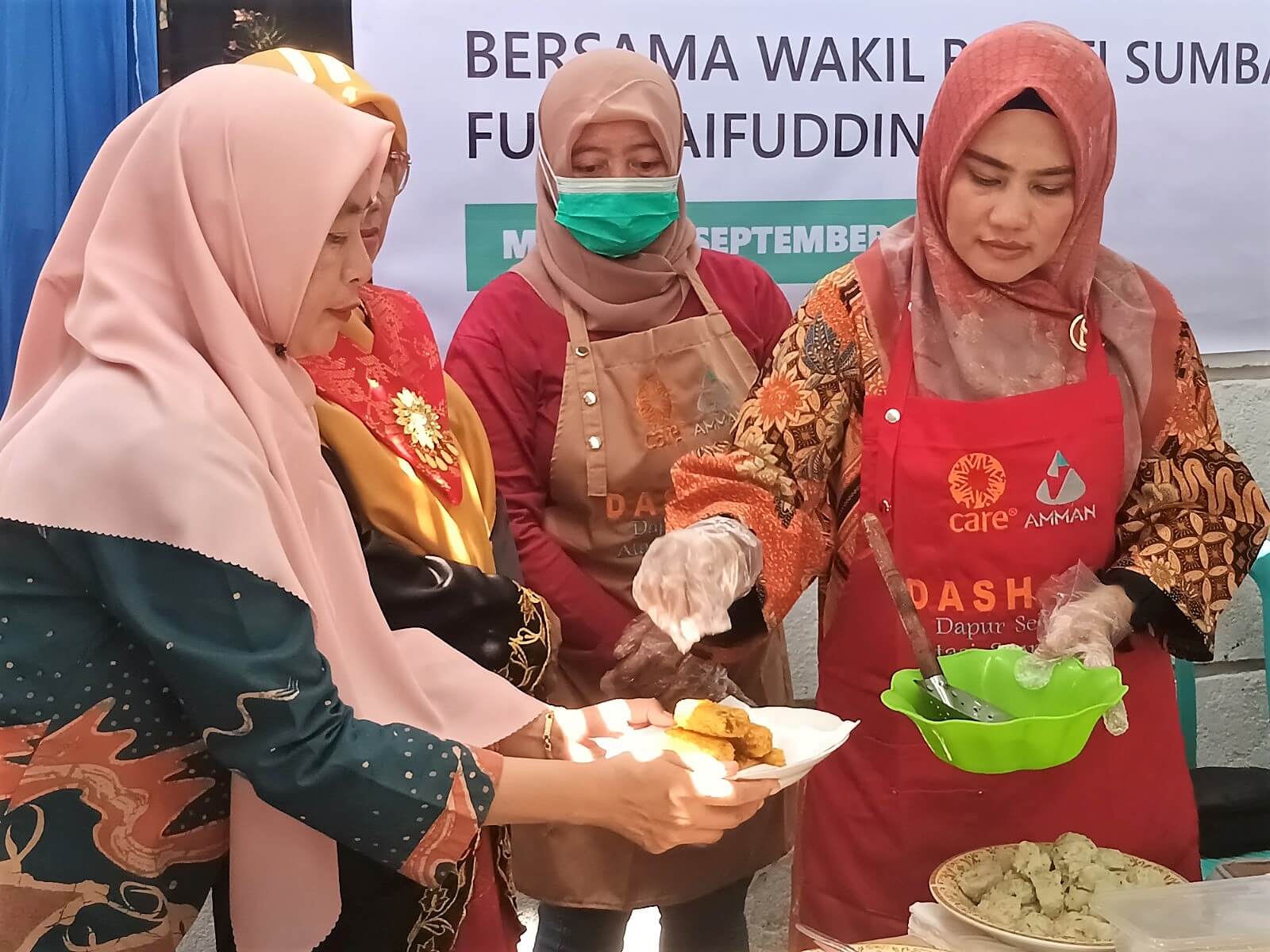

 Ir. Priyadi Santoso, M.Si., Asisten Deputi Perlindungan Hak Perempuan Pekerja dan Tindak Pidana Perdagangan Orang, Kementerian Pemberdayaan Perempuan dan Perlindungan Anak menekankan, “Keadilan dan pemenuhan hak-hak perempuan bukanlah sebuah pilihan, melainkan kewajiban yang tak terbantahkan. Perempuan dapat memberikan kontribusi yang tak ternilai dengan perspektif yang beragam, solusi komprehensif dan mendorong terciptanya harmoni dan keseimbangan. Mari dukung setiap perempuan untuk berpartisipasi, berkembang, dan berprestasi tanpa hambatan di tempat kerja maupun di lingkungan sekitar. Ayo kita wujudkan lingkungan yang adil dan inklusif dengan memastikan hak-hak perempuan dihormati sepenuhnya.”
Ir. Priyadi Santoso, M.Si., Asisten Deputi Perlindungan Hak Perempuan Pekerja dan Tindak Pidana Perdagangan Orang, Kementerian Pemberdayaan Perempuan dan Perlindungan Anak menekankan, “Keadilan dan pemenuhan hak-hak perempuan bukanlah sebuah pilihan, melainkan kewajiban yang tak terbantahkan. Perempuan dapat memberikan kontribusi yang tak ternilai dengan perspektif yang beragam, solusi komprehensif dan mendorong terciptanya harmoni dan keseimbangan. Mari dukung setiap perempuan untuk berpartisipasi, berkembang, dan berprestasi tanpa hambatan di tempat kerja maupun di lingkungan sekitar. Ayo kita wujudkan lingkungan yang adil dan inklusif dengan memastikan hak-hak perempuan dihormati sepenuhnya.” Uli Artha Pangaribuan, Direktur LBH APIK Jakarta menggaris bawahi, “Perspektif Aparat Penegak Hukum yang cenderung kurang berpihak kepada korban, pada akhirnya menjauhkan akses keadilan bagi perempuan korban kekerasan. Kami berharap, ketika ada kasus-kasus urgent untuk mendapatkan perlindungan, terutama untuk mendapatkan Rumah Aman, negara harus hadir agar kasusnya dapat berjalan sesuai proses hukum.”
Uli Artha Pangaribuan, Direktur LBH APIK Jakarta menggaris bawahi, “Perspektif Aparat Penegak Hukum yang cenderung kurang berpihak kepada korban, pada akhirnya menjauhkan akses keadilan bagi perempuan korban kekerasan. Kami berharap, ketika ada kasus-kasus urgent untuk mendapatkan perlindungan, terutama untuk mendapatkan Rumah Aman, negara harus hadir agar kasusnya dapat berjalan sesuai proses hukum.” Misrawati, Sekretaris JEKATA Purwakarta mengatakan bahwa, “Strategi kedepan akan mengajak perempuan-perempuan secara kolektif menyuarakan hak-hak perempuan di desa agar suara kita lebih didengar. Setelah adanya pelatihan paralegal dari YCP, 10 desa sudah bisa berkomitmen untuk mendukung berdirinya pos pengaduan yang ada di desa. Kami juga mendorong adanya SK terkait legalitas paralegal atau relawan untuk membantu korban (kekerasan) yang ada di desa.”
Misrawati, Sekretaris JEKATA Purwakarta mengatakan bahwa, “Strategi kedepan akan mengajak perempuan-perempuan secara kolektif menyuarakan hak-hak perempuan di desa agar suara kita lebih didengar. Setelah adanya pelatihan paralegal dari YCP, 10 desa sudah bisa berkomitmen untuk mendukung berdirinya pos pengaduan yang ada di desa. Kami juga mendorong adanya SK terkait legalitas paralegal atau relawan untuk membantu korban (kekerasan) yang ada di desa.”